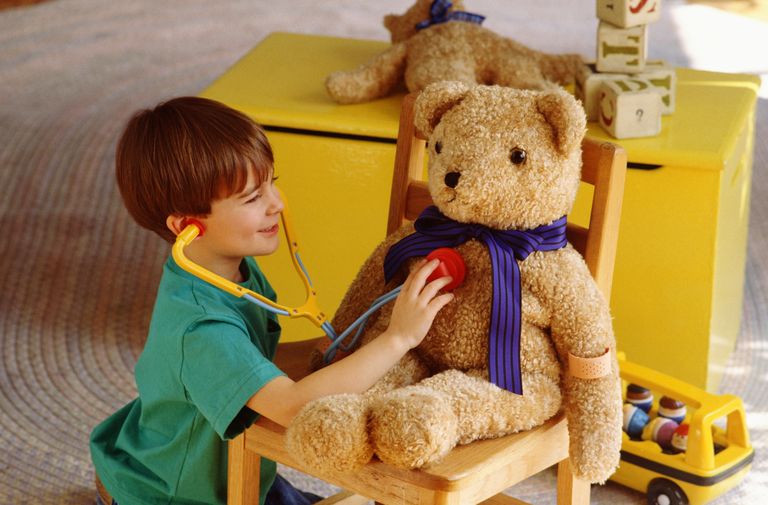
The Hidden Benefits of Pretend Play
Pretend play is an important part of childhood. You begin to see pretend play as early as the toddler stage. Young children are learning about themselves, their families, and the world around them when they pretend play. Children are not just discovering creativity when they let their imaginations take over in play—they are learning many important skills. Below are some of the skills children can learn from pretend play:
#1 Social-Emotional Skills – When children play together, they practice sharing, turn-taking, and negotiating. In addition, children can better understand and manage their feelings by acting out certain experiences. Pretend play also develops children’s ability to empathize, because they have to consider the way others act, think, and feel.
#2 Language and Vocabulary Skills – Children have a variety of experiences to share with each other, and when they talk and play together, they are actually teaching and learning new vocabulary. They are improving their language skills when they have to communicate with one another in a clear and effective manner—for example, when they are explaining a story which requires a logical plot and sequence of events.
#3 Problem-Solving Skills – Children can come up with complex plans and solve difficult problems as they play. They have to determine who is going to play which role, where the adventure is going to take place, and what events will happen along the way. If a problem arises during their journey, the children have to rethink the story and negotiate a new situation to reach a final goal that is agreed upon by everyone. Pretend play also develops abstract-thinking skills, which are higher-level thinking skills, for example, using a prop, such as a spoon, as a symbol for something else, such as a microphone.
#4 Disciplinary Skills – Children practice rules when playing. A girl might put her doll in time-out for not cleaning up a mess she made. The girl is more likely to discipline herself and follow the rules given by others having been a disciplinarian herself.
Ideas to Encourage Pretend Play:
- Show that play is valuable by playing with your children. Children realize that play is important if adults pay attention to them while they are playing and even engage with them in play.
- Appreciate and talk to your children about their play. We • often say, “You are doing a great job working,” but we may never say, “You are doing a great job playing!”
- Create an environment for play. It is important for adults to provide materials t• that children can explore and adapt in play, and it is also great if adults can provide a special “play place” or designated area for the pretend play and all the inspiring props.
- Adults should monitor play, so that when play appears to be “stuck” or unproductive, they can suggest new character roles, offer new props, or provide new adventures to inspire ideas, such as a trip to the park, aquarium, or museum.
Children get ideas for their play from books, movies, field trips, and everyday life, so if your children are interested in a particular topic, such as animals, take them to the zoo, read them a book about farm animals, or watch a movie about animals—they will be filled with

